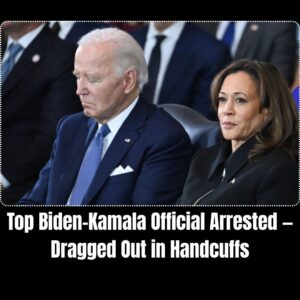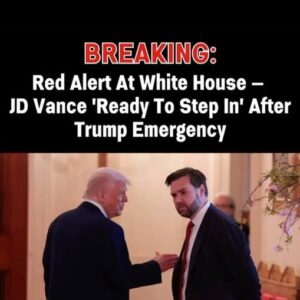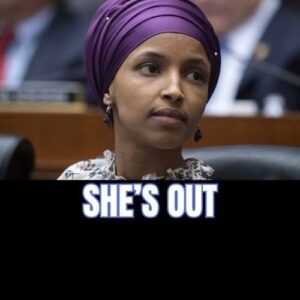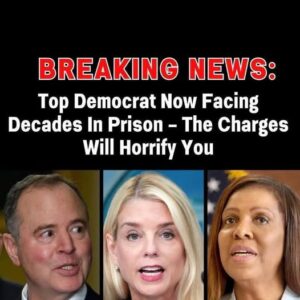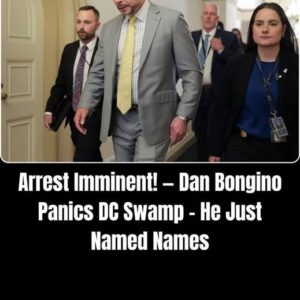The political fallout has intensified following the tragic shooting of two National Guard service members in Washington, D.C., last Friday. As investigators continue piecing together what led to the attack, the political conversation surrounding the incident has quickly escalated into a national debate — not just about the violence itself, but about the emerging reaction from Democratic lawmakers and commentators.
Within hours of the shooting, a pattern began to take shape across social media, political statements, and commentary from left-leaning activists. Many Democrats focused less on the identity or motives of the shooter and more on the decision by federal authorities to deploy National Guard troops to the nation’s capital. This emerging narrative has sparked heated criticism, particularly from those who believe the focus should remain on public safety, criminal accountability, and the details surrounding the attack.
The situation has become a flashpoint in a much broader political clash over law enforcement, federal authority, and how elected officials frame violent incidents within the current national climate.
A Unified Message Begins to Form
Reports and online commentary revealed that several Democratic voices appeared to echo a similar position: that the deployment of the National Guard itself contributed to the conditions that led to the attack. Critics quickly interpreted this as an attempt to assign responsibility not to the perpetrator of the shooting but to the leadership that ordered troops into Washington, D.C.
This narrative gained attention after several prominent political figures shared statements that framed the presence of uniformed personnel in the city as a catalyst rather than a safety precaution. While each statement varied in language and emphasis, the underlying theme struck many observers as a coordinated attempt to shift the conversation away from the attacker and onto the decision-makers behind the deployment.
The reaction from opposing commentators was swift. Many argued that this framing was inappropriate so soon after the tragedy and risked misplacing blame. Others expressed concern that politicizing the deployment could overshadow the immediate need to support injured troops and thoroughly investigate the shooting.
A Dramatic Online Backlash
One particular statement — widely circulated on social media — drew substantial backlash after it suggested that the shooting might not have occurred had National Guard forces not been stationed in the city. The reaction was so strong that the post garnered thousands of critical responses, drawing what many online users described as an overwhelmingly negative “ratio.”
Observers pointed out that while discussions about policy decisions are valid, the timing and tone of the argument appeared insensitive to the victims and their families. Much of the public criticism centered on the idea that political debate should not displace the core issues: identifying the shooter, understanding the circumstances of the attack, and determining how such incidents can be prevented in the future.
Political commentator Charles C. W. Cooke was among those who responded forcefully, stating that the argument effectively placed responsibility not on the attacker but on those who authorized the deployment. His comment — which was reposted widely — argued that such reasoning indirectly absolves the shooter of accountability.
“You may have a different opinion about the deployment,” he wrote, “but the deployment itself isn’t the reason for the shooting… unless you’re implying that it is.”
His response captured the sentiment of many critics who viewed the emerging Democratic narrative as misguided.
The Policy Debate Behind the Deployment
The deployment of National Guard troops to Washington, D.C. has been the subject of political disagreement for years, particularly during periods of civil unrest, large public demonstrations, or elevated security concerns. Supporters argue that such deployments are sometimes necessary to reinforce public safety, protect federal property, and ensure rapid response capabilities during emergencies.
Opponents often caution that militarizing public spaces can inflame tensions or create the appearance of a heavy-handed federal presence. In this specific case, critics of the deployment argued that it heightened the risk of confrontation — though they did not present evidence that the shooter acted in response to the troops’ presence.
Those defending the deployment noted that National Guard personnel frequently serve in non-combat support roles, including traffic control, emergency assistance, and public safety coordination. They stressed that the presence of troops does not inherently provoke violence and that attributing blame to the deployment risks overshadowing the fundamental responsibility of the assailant.
Political Reactions Grow More Intense
As the conversation intensified, some commentators expanded on the argument that political leaders should focus on the criminal act rather than attempting to draw broader conclusions about the decision to station troops in the city. Others noted that violent attacks on public servants — military, law enforcement, or civilian — require a unified and measured response from elected officials, not partisan debate.
Still, several left-leaning voices doubled down on the idea that the deployment itself was a contributing factor. This prompted additional backlash, with critics arguing that such statements risked creating confusion about the nature of the incident and undermined public confidence in the investigation.
Some analysts suggested that the rapid adoption of similar talking points across multiple online platforms might have been driven by internal political messaging efforts. While organized communication strategies are common in modern politics, the speed at which this narrative spread fueled suspicions that the response was coordinated, especially among those skeptical of the framing.
The Focus Returns to the Victims
Amid the political debate, officials emphasized that two National Guard members were seriously injured during the shooting and were receiving medical treatment. Additional statements from military representatives underscored the need to prioritize the welfare of the service members and to refrain from speculation until more information becomes available.
Law enforcement agencies, including local police and federal investigators, continued to gather evidence and interview witnesses. Authorities have not yet released detailed information about the motive or background of the shooter, and investigators have urged the public to avoid drawing premature conclusions.
Family support organizations and military advocacy groups called for unity and compassion for the injured troops, stressing that political debates should not distract from the human cost of the attack.
Public Safety and the Broader Discussion
The shooting has reignited discussions about crime in Washington, D.C., which has faced challenges in recent years related to violent incidents, property crime, and public safety concerns. Some policymakers argue that increased federal support, including National Guard deployments, may be necessary under certain circumstances. Others believe that improving local policing strategies, community programs, and mental health resources would be more effective long-term solutions.
The debate also touches on ongoing national conversations about law enforcement presence in urban areas. While some Americans support a stronger visible security posture, others fear that increased federal involvement could escalate tensions or signal instability.
Regardless of political perspectives, many analysts agree that the city’s crime environment must be addressed comprehensively. The attack on the National Guard members highlighted vulnerabilities that city leaders and federal agencies may need to assess more closely.
The Path Forward
As investigators continue gathering details about the incident, the political narrative surrounding the shooting is likely to remain contentious. Many expect both parties to continue shaping the story in ways that support their broader views on public safety, law enforcement, and federal authority.
For now, officials have urged caution, respect for the investigative process, and support for the injured service members. While the debate over the National Guard deployment may continue, the full circumstances of the shooting will not be understood until authorities complete their review.
The situation also raises important questions about how political actors communicate during moments of crisis. As the national conversation evolves, the key challenge will be maintaining focus on factual information, public safety, and the well-being of those directly affected — rather than allowing tragedy to become overshadowed by political messaging.
